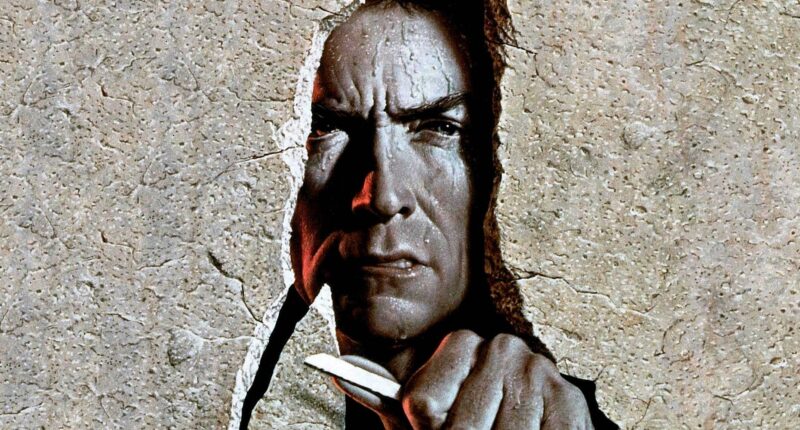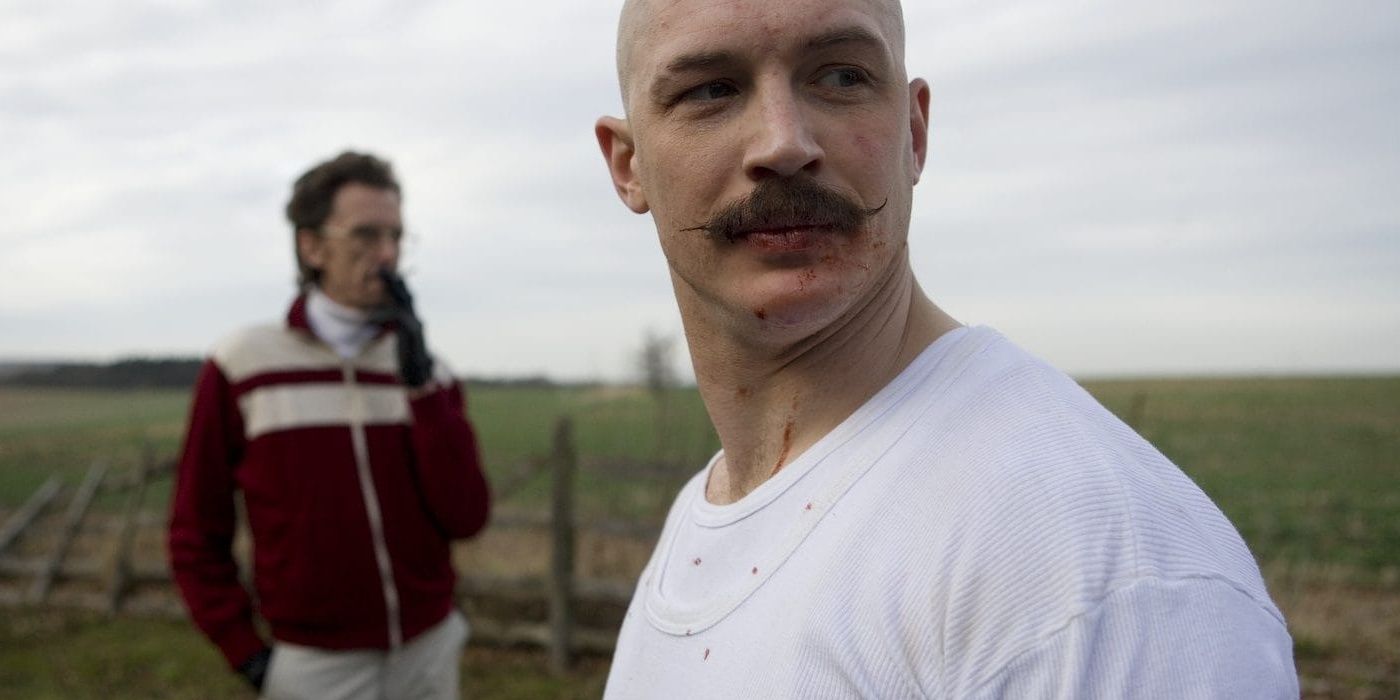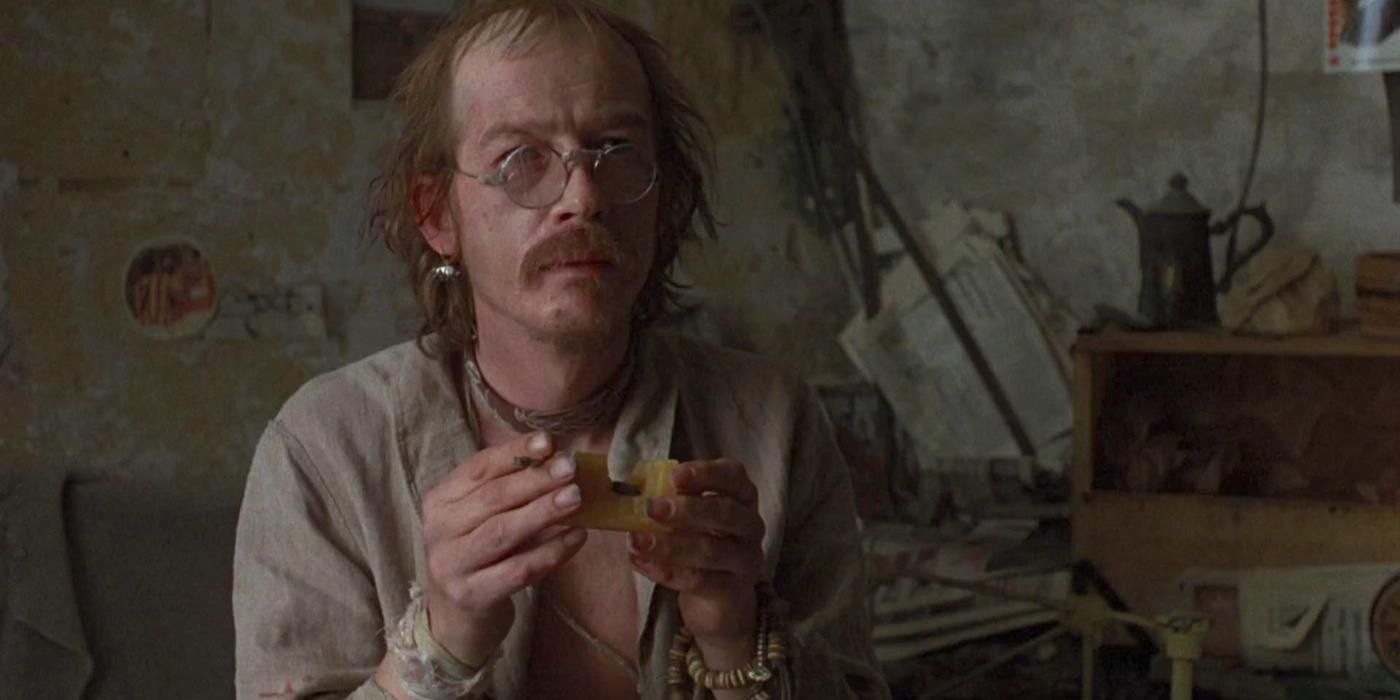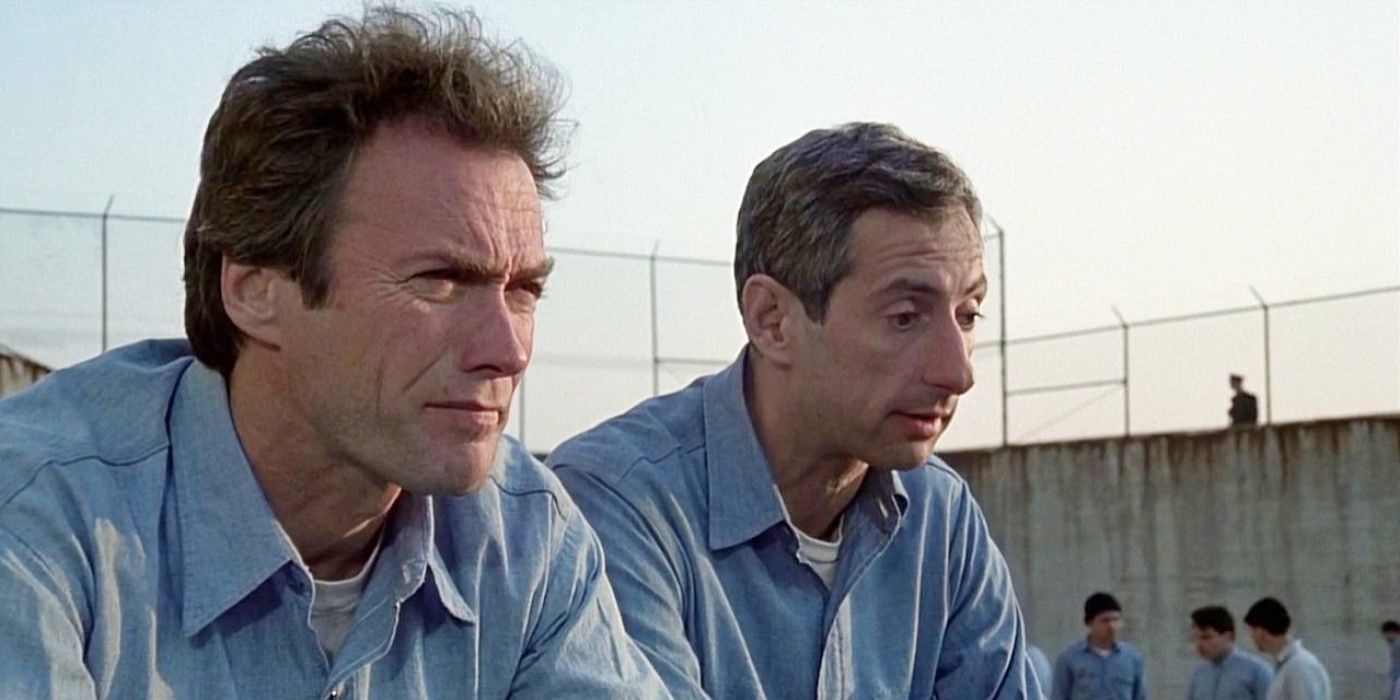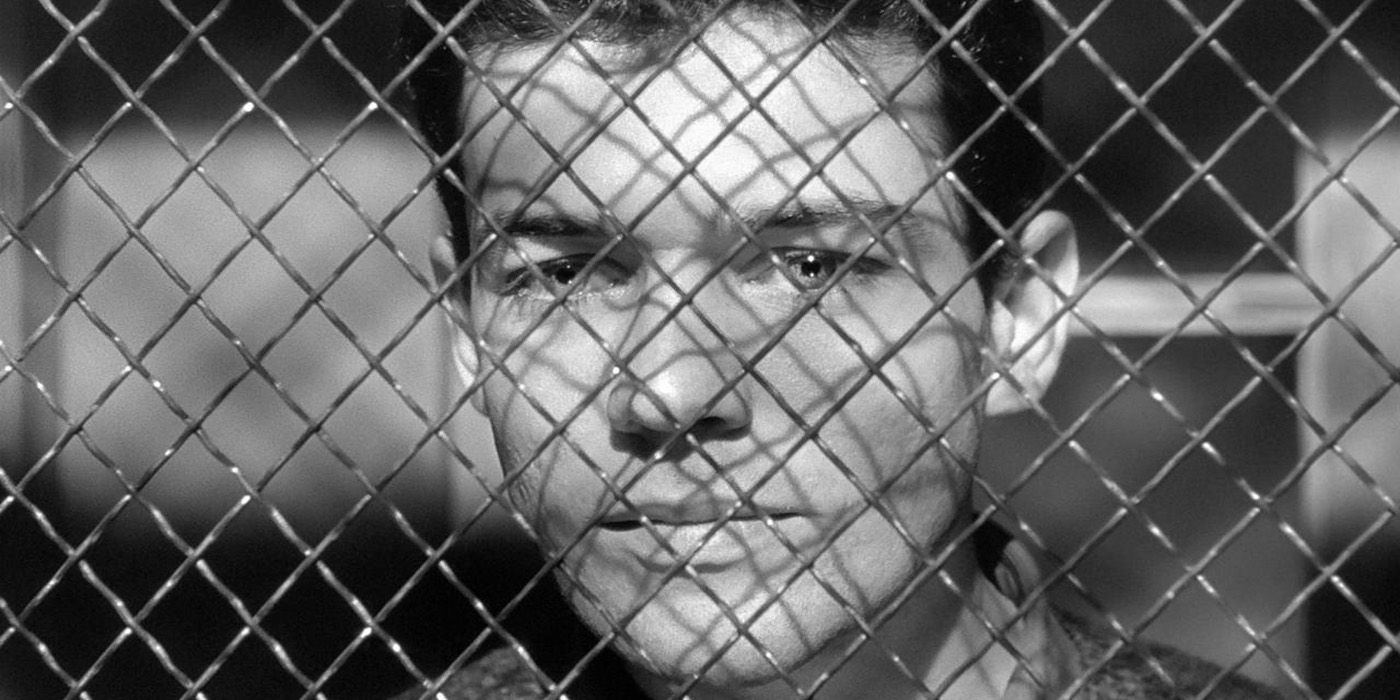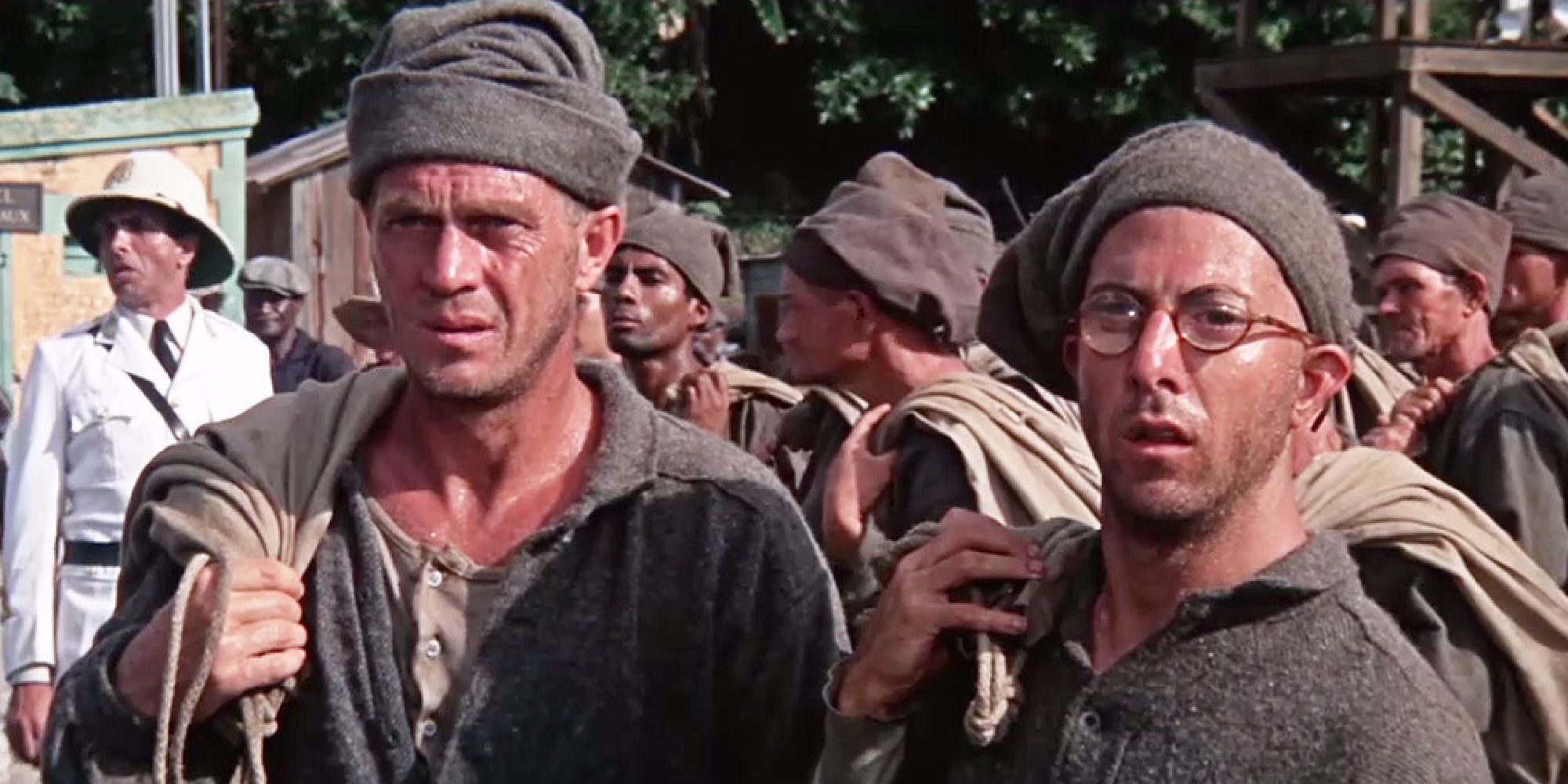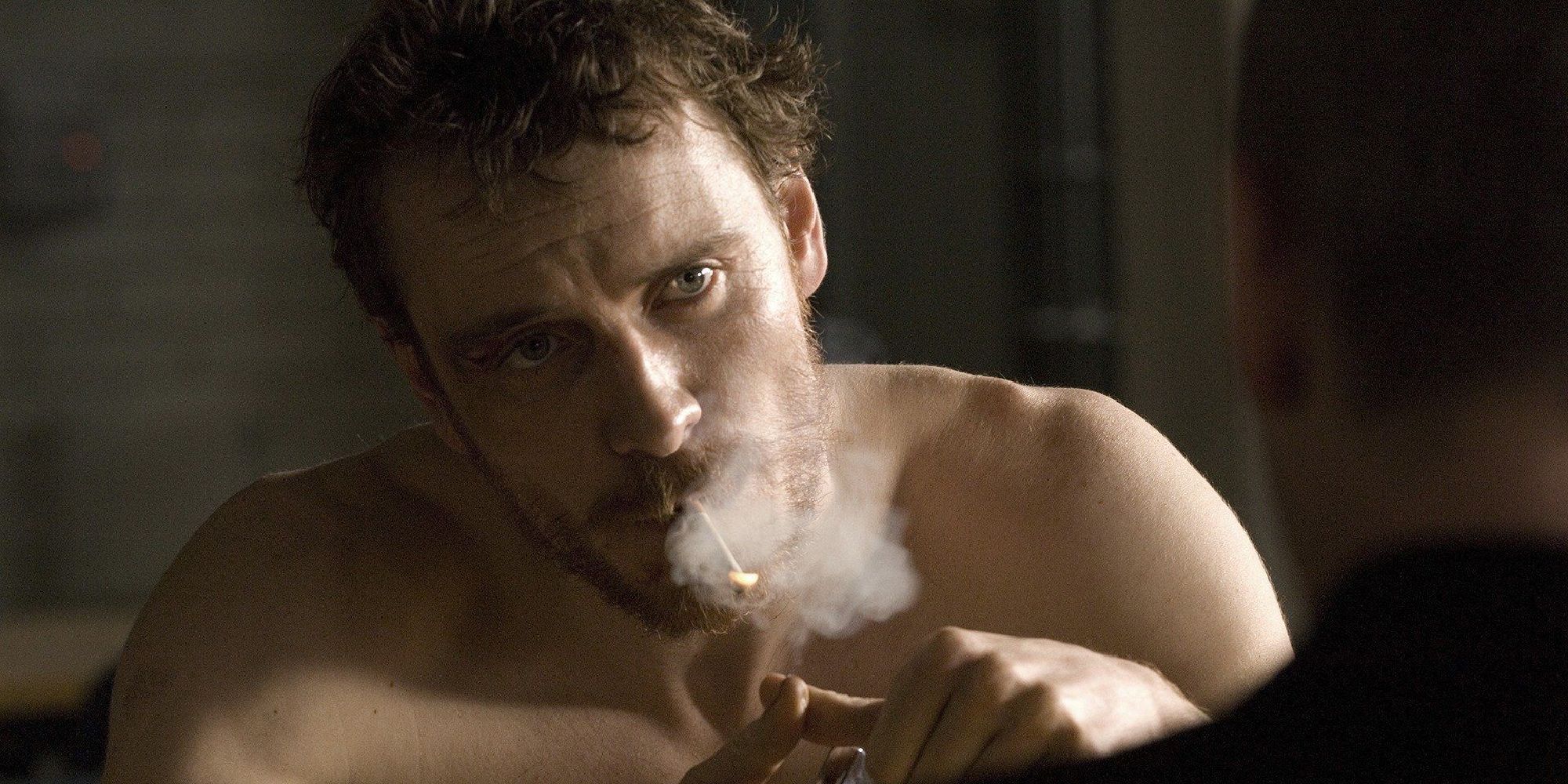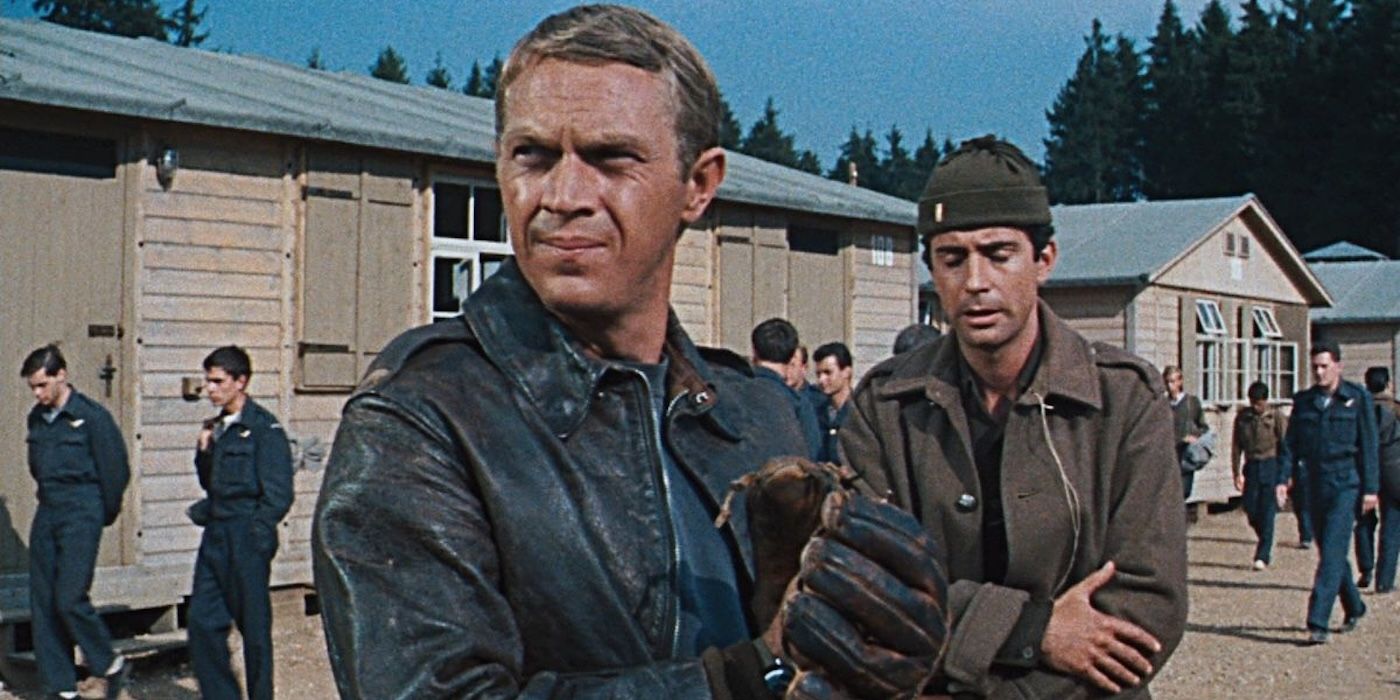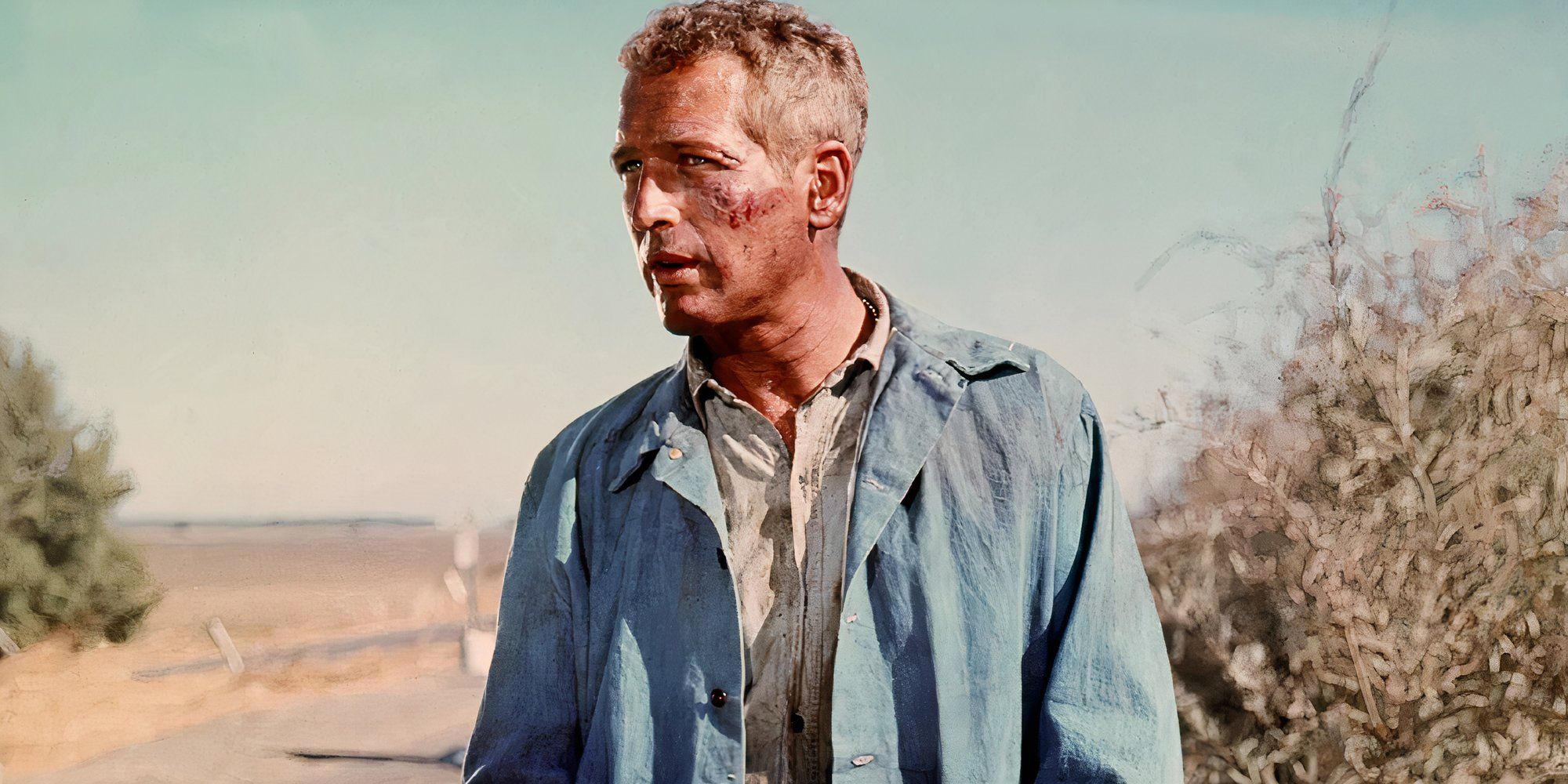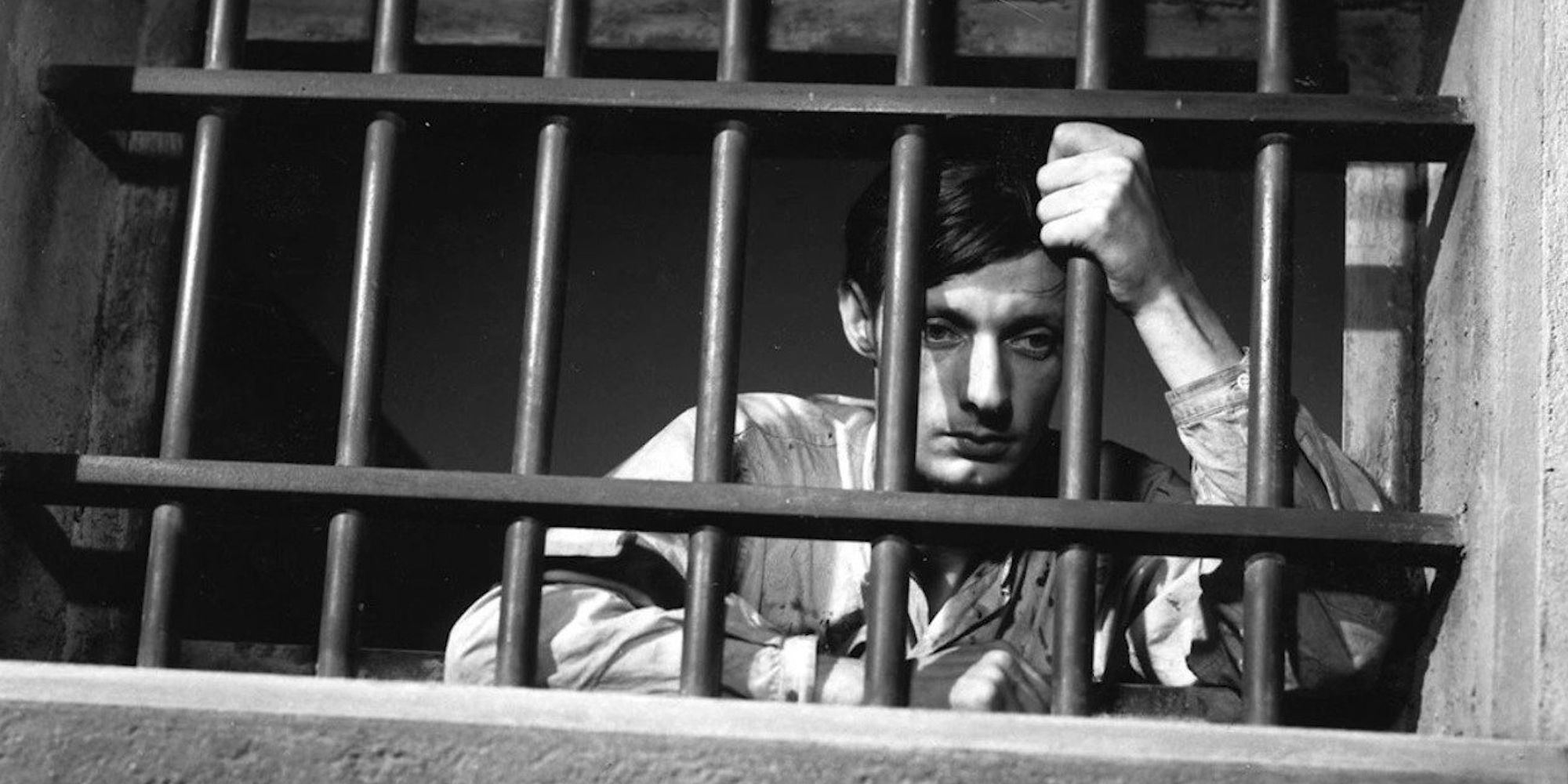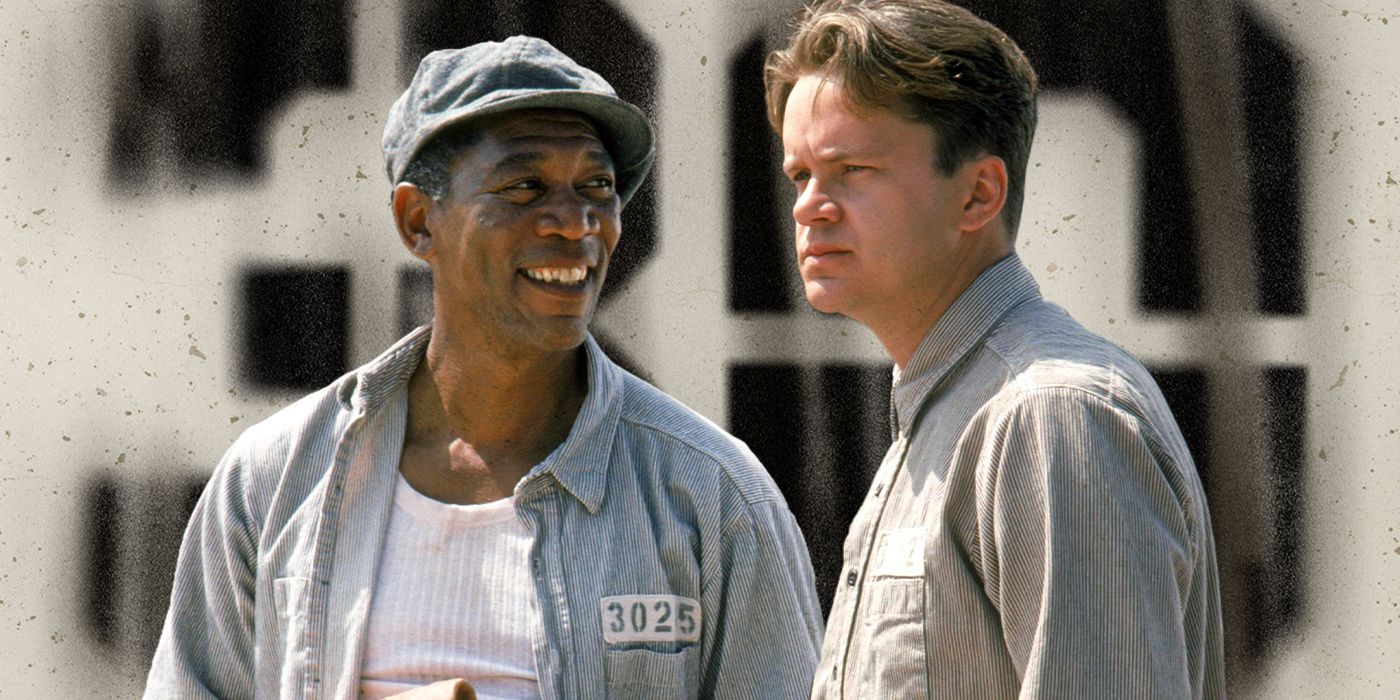The best prison movies aren’t just about bars and walls. They’re about defiance, hope, transformation, and the will to survive. These films peer into some dark places, but they also shine with moments of resistance, brotherhood, and unexpected grace.
These ten films are the genre’s essentials. Some are brutal, some are meditative, most are thrilling, but all of them leave a mark. They give voice to the trapped, the condemned, and the resilient. And whether the prisoners escape or not, they find ways to assert their humanity in an environment designed to strip it away.
10
‘Bronson’ (2008)
Directed by Nicolas Winding Refn
“I came into this world as Charlie Bronson, and I’m going out the same way.” Bronson is a brutal, stylized portrait of Britain’s most notoriously violent prisoner, Michael Peterson (Tom Hardy), who rechristened himself Charles Bronson. Bronson isn’t interested in escape. Instead, he craves performance, spectacle, dominance. The film doesn’t romanticize him, but it doesn’t look away either. Thanks to solid writing and Hardy’s frighteningly charismatic performance, Bronson adds up to a character study of a man who found his calling inside a cell.
Director Nicolas Winding Refn presents Bronson’s life as a surreal, theatrical psychodrama, full of operatic voiceovers and confrontational fourth-wall breaks. It’s part biopic, part fever dream, and utterly unlike any other prison movie. Even more impressive, the movie fits all this into a lean 92 minutes. Plus, Bronson is refreshing precisely because it doesn’t try to explain or psychologize its subject’s behavior. Disturbing, darkly funny, and undeniably memorable.
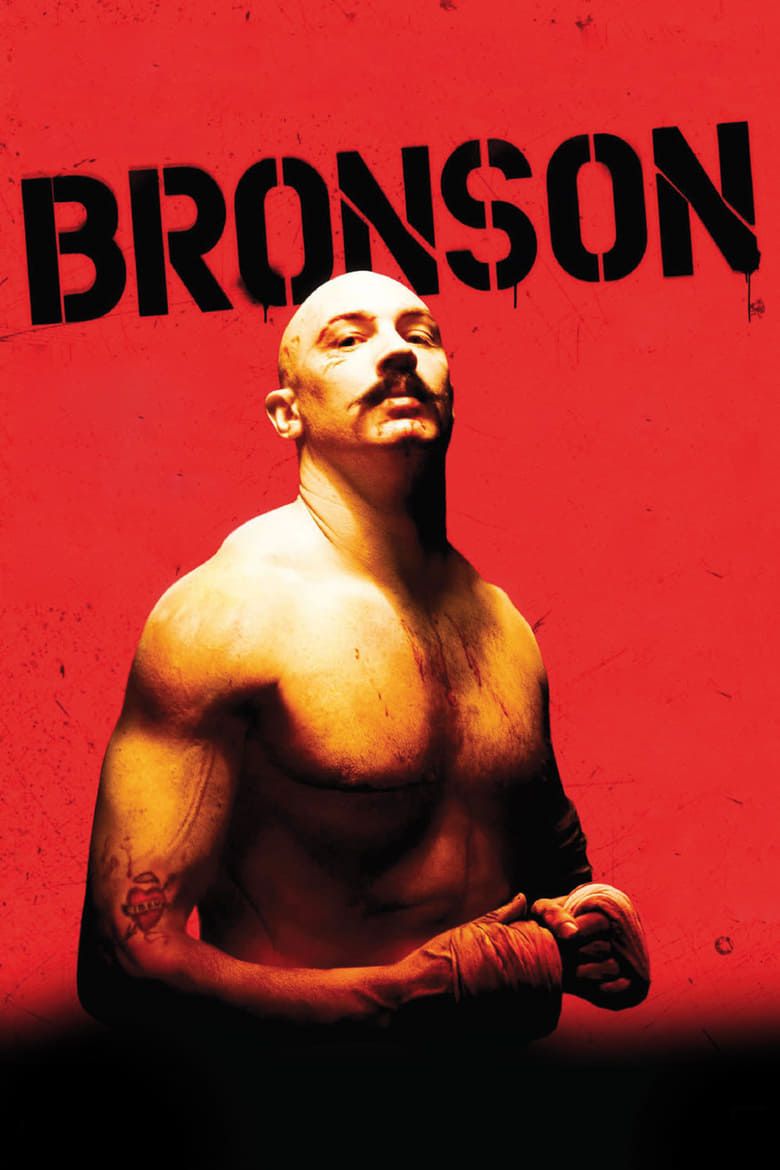
bronson
- Release Date
-
October 9, 2008
- Runtime
-
92 minutes
- Director
-
Nicolas Winding Refn
- Writers
-
Brock Norman Brock
9
‘Midnight Express’ (1978)
Directed by Alan Parker
“I took the money. I knew what I was doing. I was wrong.” Few films capture the claustrophobia of imprisonment like Midnight Express. Based on the true story of Billy Hayes (Brad Davis), an American caught smuggling hashish in Turkey, it transforms a youthful mistake into a harrowing odyssey through abuse, isolation, and near madness. It’s a full-on descent into the jaws of a corrupt and merciless system.
Davis delivers a raw, haunted performance. We watch as Billy is slowly worn down by beatings, betrayals, and prison routine. The film sparked controversy for its depiction of Turkish institutions, and some quibbled with a few historical inaccuracies, but its visceral power is undeniable. Alan Parker directs with intense, almost hallucinatory style, while the synth score by the legendary Giorgio Moroder underscores the horror with eerie beauty. In the end, Midnight Express is a brutal depiction of what it really means to lose your freedom.
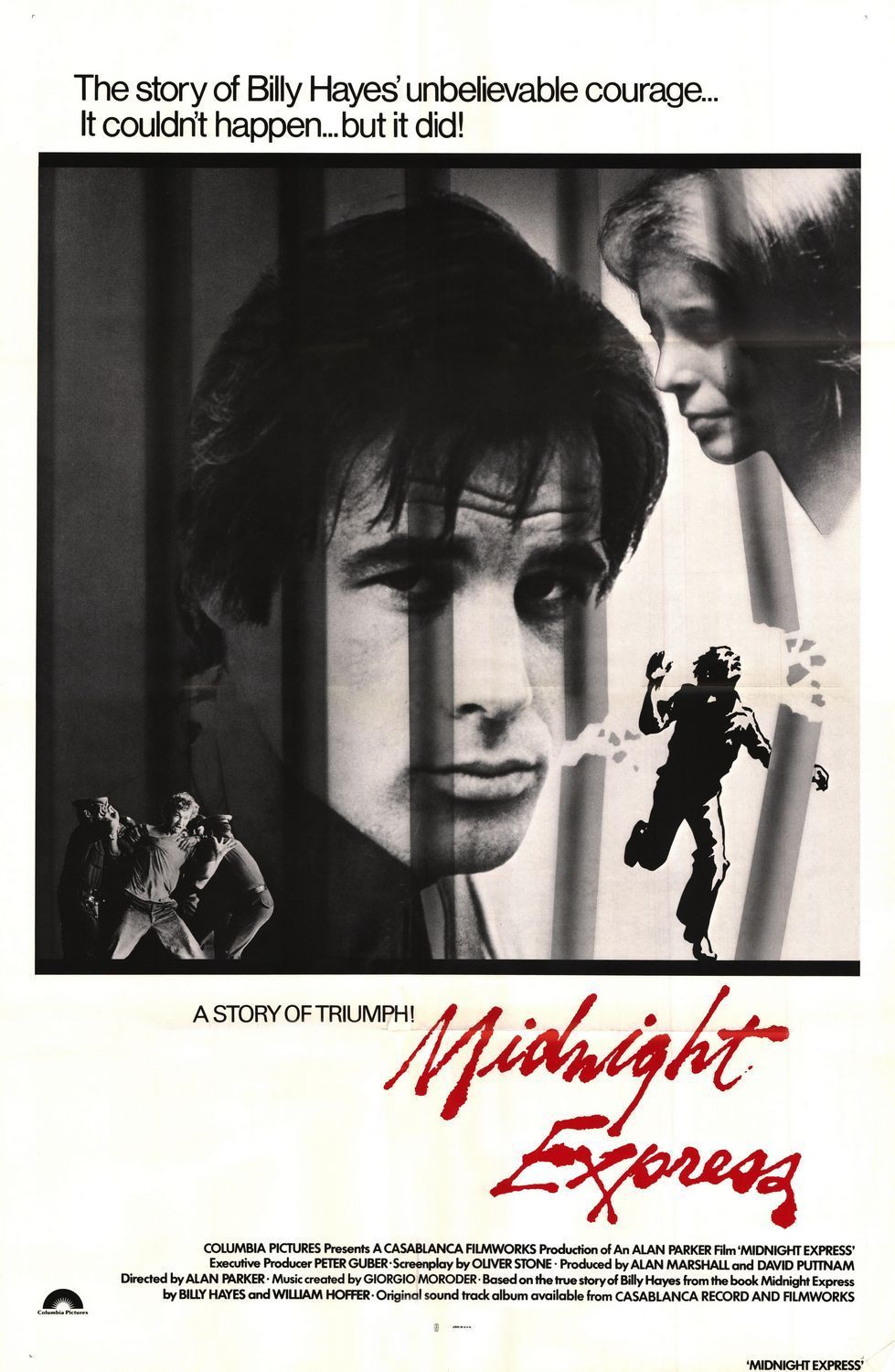
Midnight Express
- Release Date
-
October 6, 1978
- Runtime
-
121 minutes
- Director
-
Alan Parker
- Writers
-
Billy Hayes, William Hoffer, Oliver Stone
8
‘Escape from Alcatraz’ (1979)
Directed by Don Siegel
“Alcatraz was built to keep all the rotten eggs in one basket.” There’s something hypnotic about Escape from Alcatraz. Rather than being flashy or frantic (a common problem with this subgenre), it’s quiet, methodical, and deeply suspenseful. Clint Eastwood has top billing as Frank Morris, the real-life inmate who masterminded the most famous breakout from the infamous island prison. This is no run-of-the-mill action movie, however. Escape is a slow-burn procedural where every chisel tap and paper-mâché head matters.
In particular, the film thrives on patience, silence, and the unrelenting pressure of being watched. It helps that the characters are fairly layered. The supporting prisoners are sketched in with pathos, and Eastwood is the perfect eye of the storm. The final escape sequence is handled with stunning restraint, and the ending leaves us uncertain, awed, and hopeful. It’s the ultimate “plan your way out” movie, and one of the most quietly gripping prison films ever made.
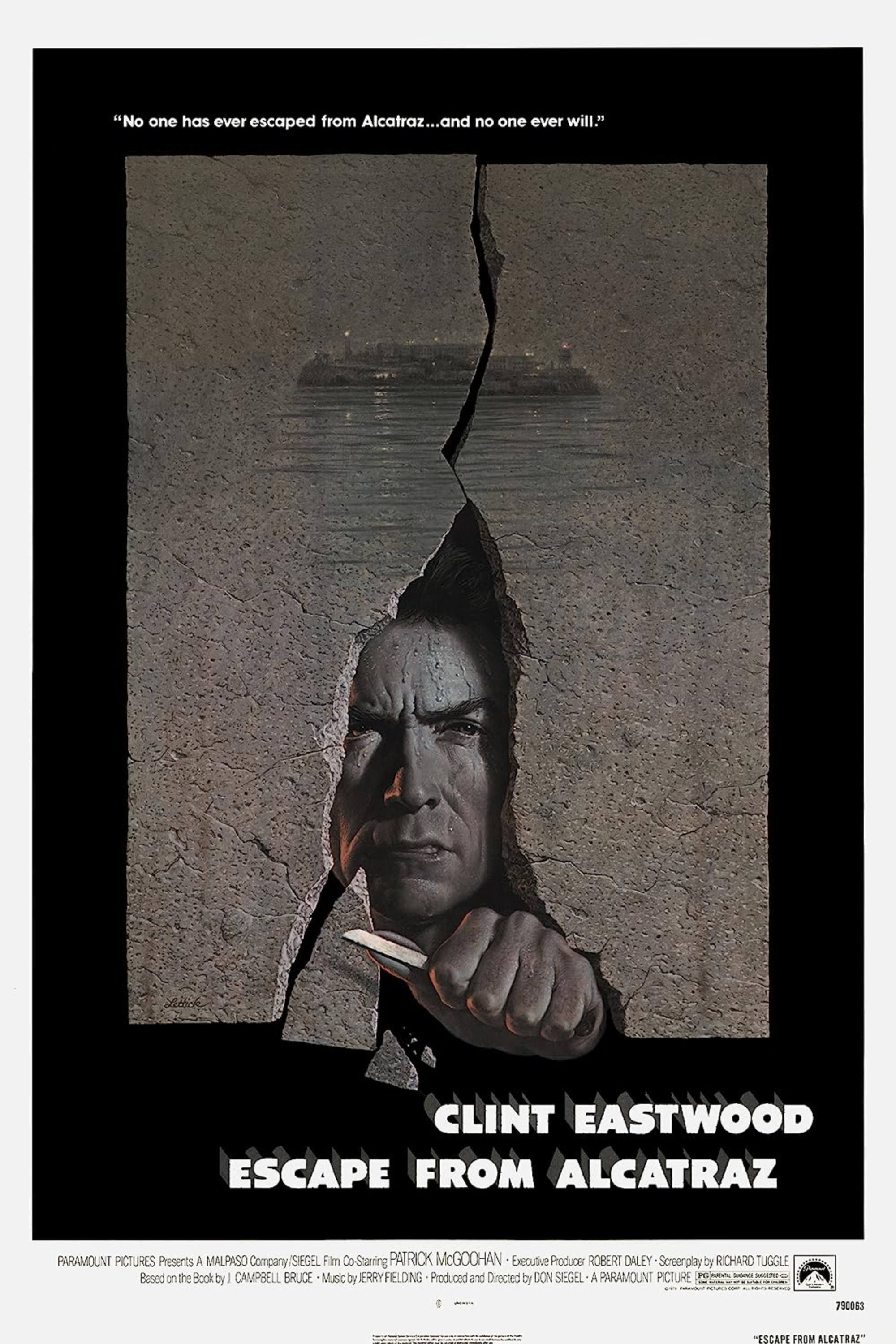
Escape from Alcatraz
- Release Date
-
June 22, 1979
- Runtime
-
112 Minutes
- Director
-
Don Siegel
- Writers
-
J. Campbell Bruce, Richard Tuggle
7
‘Le Trou’ (1960)
Directed by Jacques Becker
“When a man is in prison, he needs patience—that’s all he’s got.” Le Trou (meaning “The Hole) is one of the most realistic prison films. It was the final movie made by Jacques Becker, a figure who greatly influenced the French New Wave. It’s based on the true story of an attempted escape from France’s La Santé Prison in 1947. The drama is conveyed with minimal music, documentary-like cinematography, and a cast of mostly non-professional actors (including one of the actual escapees).
The result is prison escape cinema stripped to the bone. The plot is deceptively simple: five prisoners dig a tunnel, one centimeter at a time. The sound of chiseling bricks becomes a kind of heartbeat. Every shadow might conceal a guard. In the end, Le Trou is about more than escape. It’s a statement on camaraderie, paranoia, and the tragedy that comes when desperation meets the cold edge of reality.
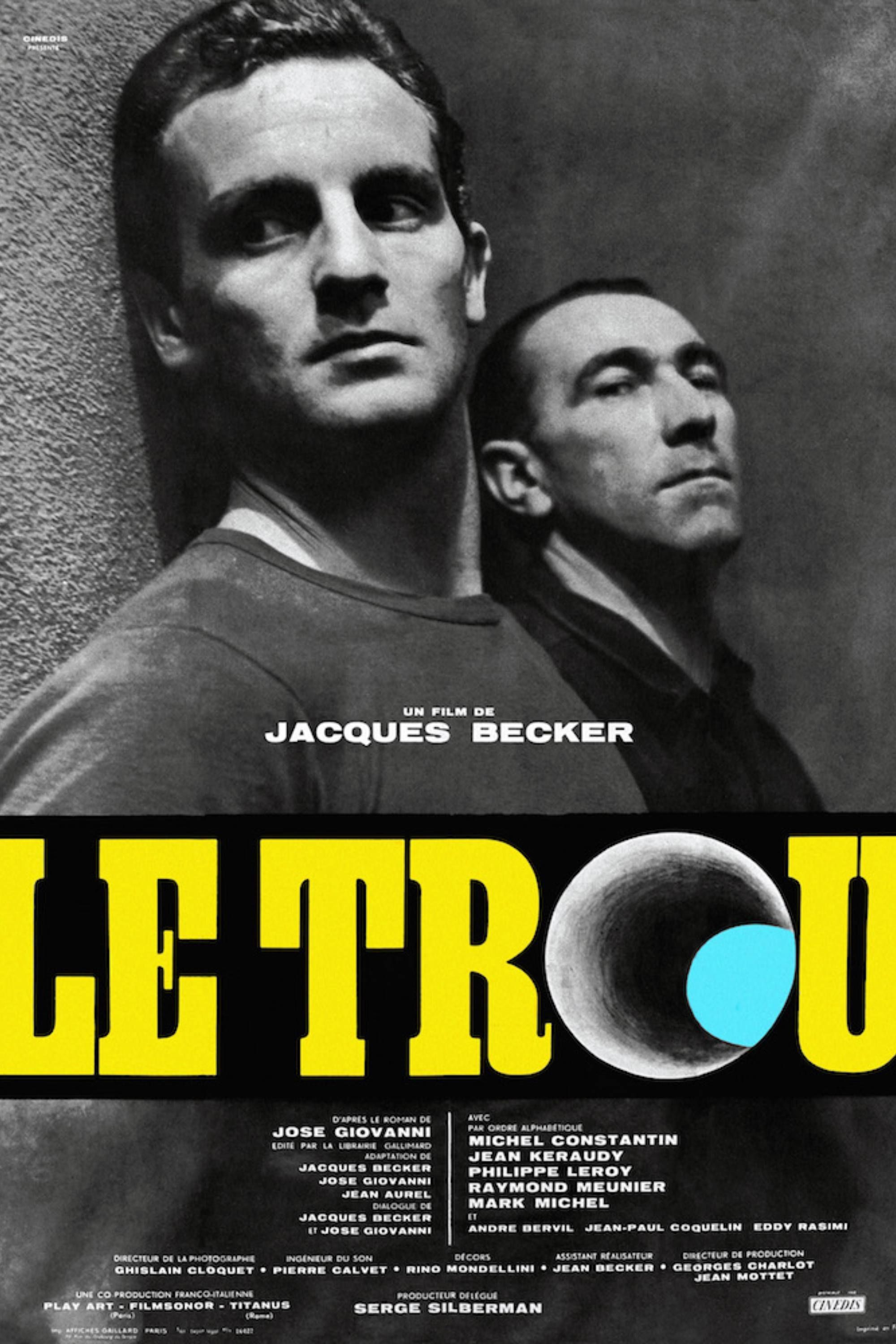
Le Trou
- Release Date
-
February 14, 1997
- Director
-
Jacques Becker
- Writers
-
José Giovanni, Jacques Becker, Jean Aurel
6
‘Papillon’ (1973)
Directed by Franklin J. Schaffner
“I’m still here, you bastards. Still alive!” Few prison movies are as grueling or emotionally expansive as Papillon. Based on the memoir of Henri Charrière, the film follows its title character (nicknamed Papillon, or “butterfly”) from his false conviction to years of brutal exile in the French penal colonies of South America. Steve McQueen, in one of his best roles, gives a fierce and quietly wounded performance, while Dustin Hoffman provides quirky, tragic support as the timid counterfeiter Dega.
What makes the film legendary, though, is its scope. This is a years-long journey through punishment, friendship, madness, and resilience. We see starvation, isolation, and escape attempts gone wrong, but Papillon’s indomitable spirit carries us through. From its epic cinematography to its haunting final image, Papillon is a harrowing, unforgettable testament to the human will. Fundamentally, it’s about maintaining a shred of identity when everything else is stripped away.
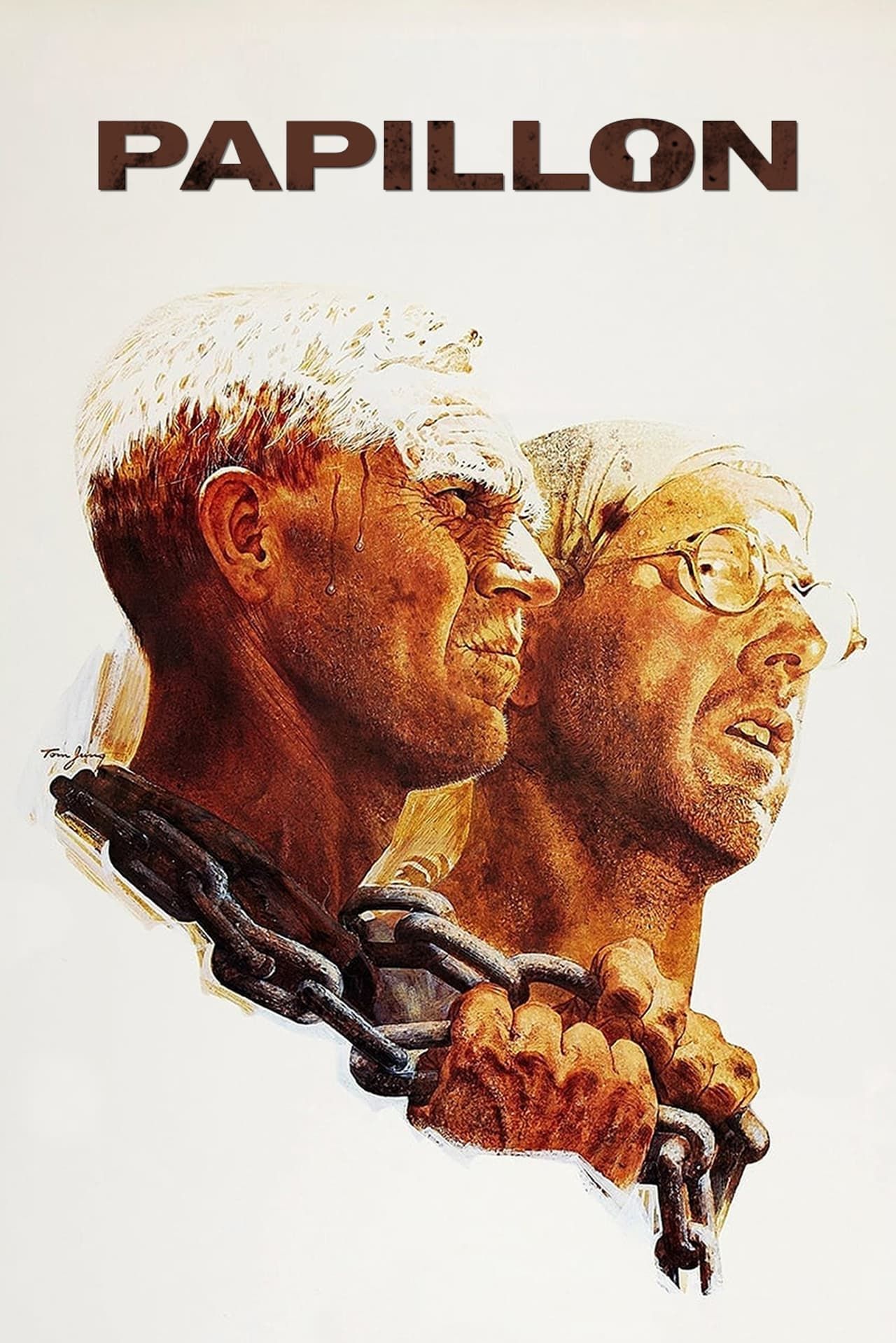
Papillon
- Release Date
-
December 16, 1973
- Runtime
-
151 Minutes
- Director
-
Franklin J. Schaffner
- Writers
-
Lorenzo Semple Jr., Dalton Trumbo
5
‘Hunger’ (2008)
Directed by Steve McQueen
“We are committed to ending this. We are prepared to die.” Hunger is a punishing, poetic, and uncompromising. Directed by Steve McQueen (in his feature debut), the film dramatizes the 1981 hunger strike led by Irish republican Bobby Sands (Michael Fassbender) in Northern Ireland’s Maze Prison. It’s less a biopic than a meditation on pain, control, and sacrifice. McQueen’s direction is almost painterly, and Fassbender’s performance is transformative.
The most famous scene, a single, uninterrupted 17-minute conversation between Sands and a priest, is a masterclass in tension. The film is intensely physical, pulling away from abstract ideals and instead showing you the ugly reality; the filth smeared on cell walls, the brutality of guards, the body wasting away. Ultimately, Hunger demands patience, empathy, and stamina from its viewers, but rewards them with a depiction of conviction so raw, so total, it feels almost biblical. It shows the dedication required to push oneself to the brink for one’s ideals.
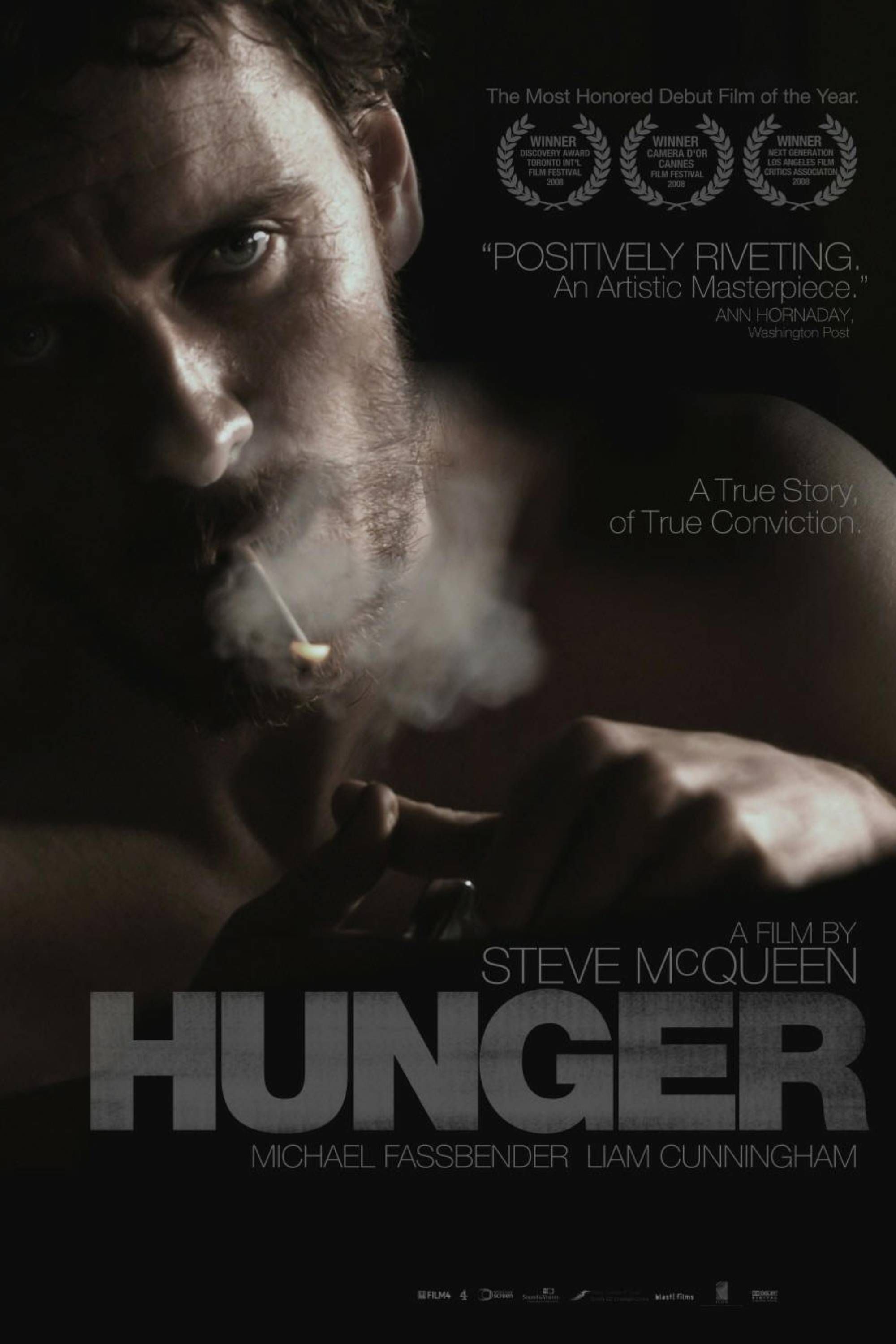
Hunger
- Release Date
-
October 31, 2008
- Runtime
-
96 minutes
- Director
-
Steve McQueen
- Writers
-
Steve McQueen, Enda Walsh
4
‘The Great Escape’ (1963)
Directed by John Sturges
“It is the sworn duty of all officers to try to escape.” Steve McQueen strikes again, this time in a movie practically synonymous with the prison genre. The Great Escape is a prison movie that plays like a grand adventure, yet still honors the courage and cost of its true story. It’s based on a real mass escape from a German POW camp during World War II, featuring an ensemble cast of legends like McQueen, James Garner, and Richard Attenborough.
From forging documents to digging tunnels, the escapees execute their plan with boundless gallows humor. Perhaps that’s the only way to stay sane in a situation like this. The breakout sequence itself is masterfully paced, culminating in McQueen’s famous motorcycle chase. Yet the cost of resistance is high, and the final minutes sting with loss and quiet pride. It’s one of the most beloved prison movies ever, for a reason.
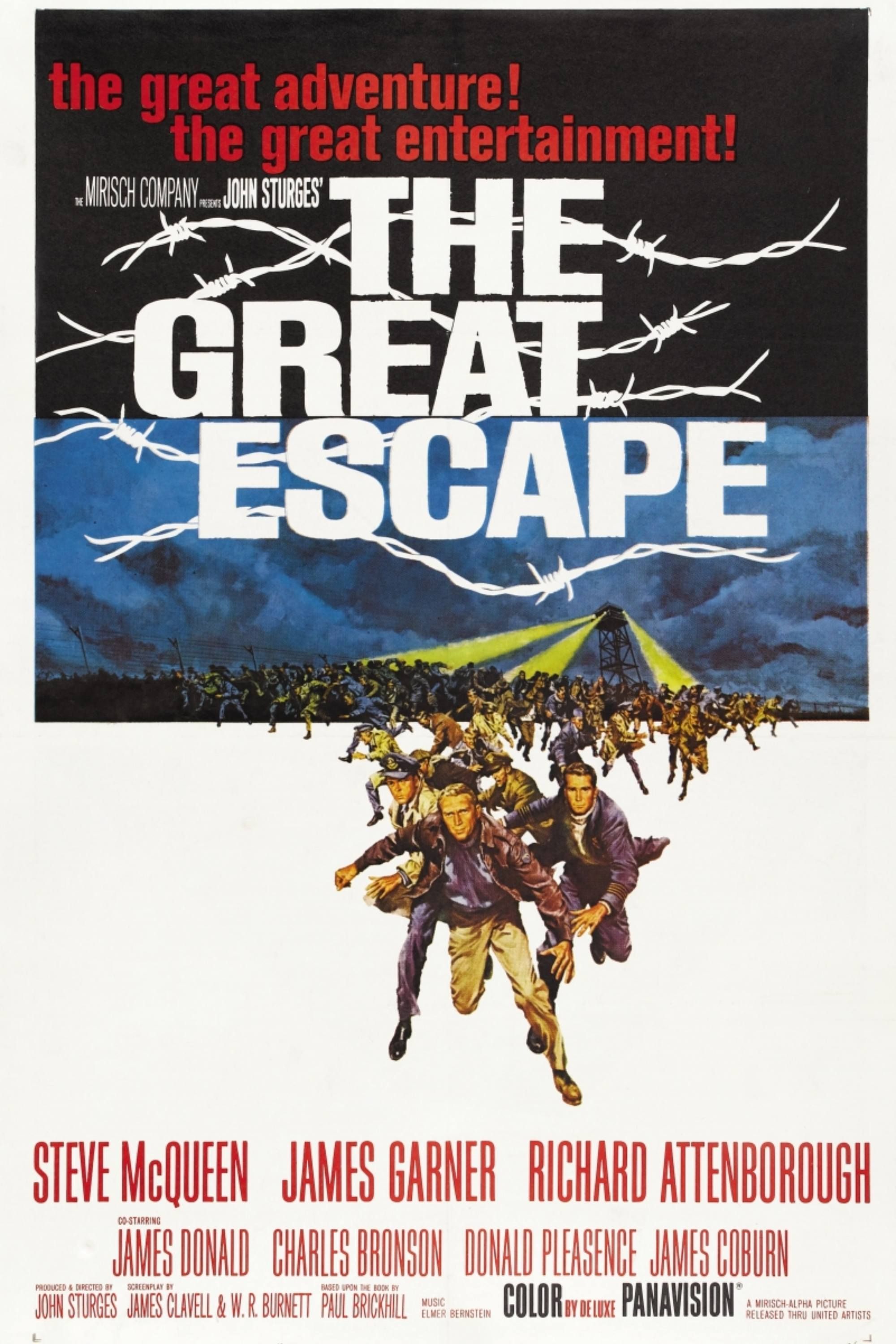
The Great Escape
- Release Date
-
July 4, 1963
- Runtime
-
172 Minutes
- Director
-
John Sturges
- Writers
-
Paul Brickhill, James Clavell, W.R. Burnett
3
‘Cool Hand Luke’ (1967)
Directed by Stuart Rosenberg
“What we’ve got here is failure to communicate.” Here, Paul Newman turns in a mythic performance as Luke, a war vet sentenced to a chain gang in the American South. There, he becomes an unlikely symbol of rebellion against arbitrary authority. The story is simple, but the character is unforgettable. With a permanent wry smile, Luke eats 50 eggs, fights when he can’t win, and keeps getting up no matter how often he’s knocked down. His is less a physical escape than a spiritual revolt, a quiet anthem for the unbroken soul.
In this regard, the movie blends Christ-like allegory with gritty realism, never overselling its symbolism but never hiding it either. Every shot is drenched in heat, dust, and moral weight. The actors rise to the occasion. Newman is fantastic, and George Kennedy won an Oscar for his role as Dragline, the tough inmate who becomes Luke’s disciple. Combined, these elements made Cool Hand Luke a countercultural touchstone.
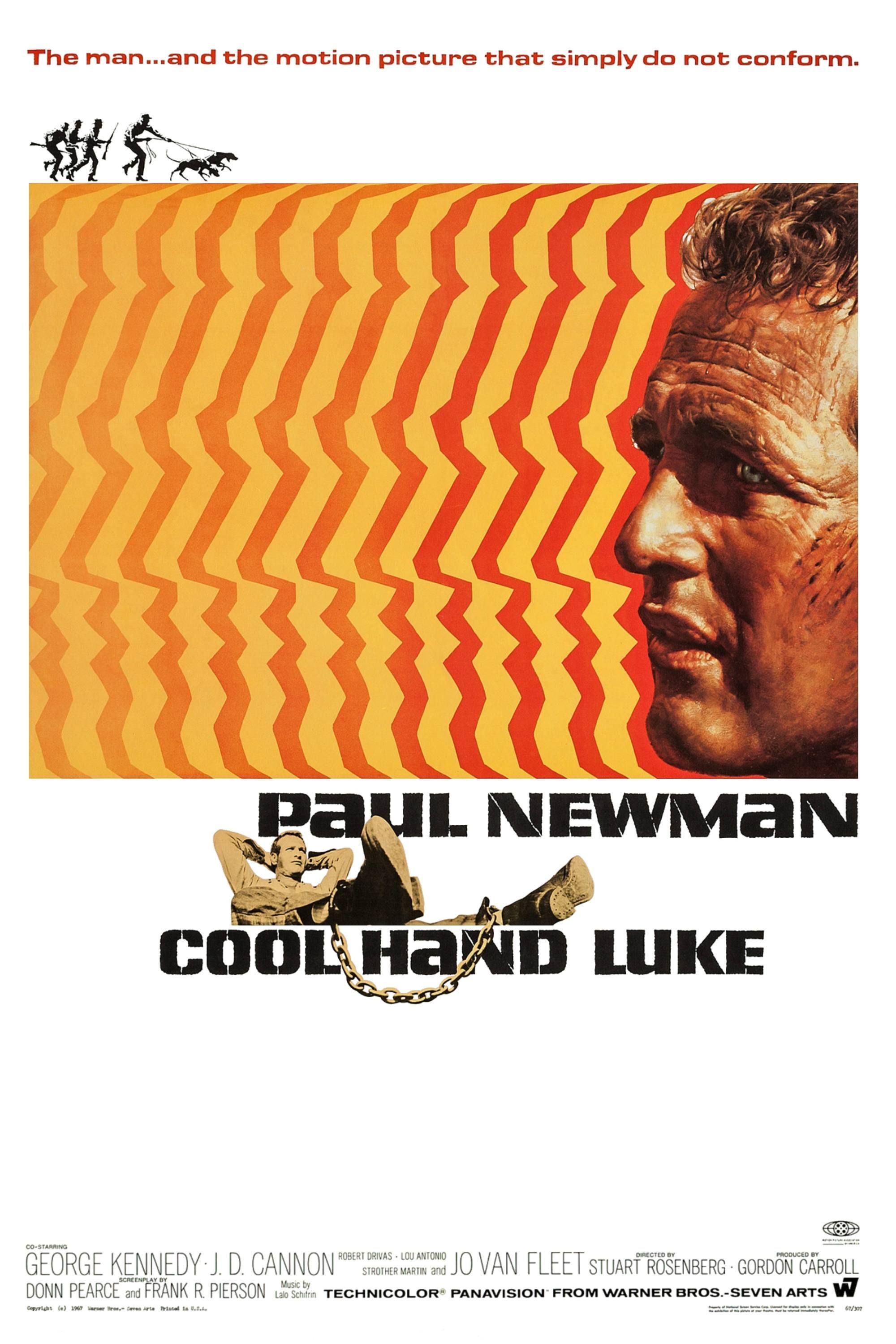
Cool Hand Luke
- Release Date
-
November 1, 1967
- Runtime
-
127 Minutes
- Director
-
Stuart Rosenberg
- Writers
-
Donn Pearce, Frank Pierson, Hal Dresner
2
‘A Man Escaped’ (1956)
Directed by Robert Bresson
“Victory belongs to the most persevering.” Few prison movies are as stripped-down, deliberate, and transcendent as Robert Bresson‘s A Man Escaped. Based on the true story of French resistance fighter André Devigny, it follows a prisoner (François Leterrier) plotting his escape from Nazi captivity. Bresson’s approach is radically minimalist. No music, non-professional actors. Yet the effect is hypnotic. Every creak of wood, every tightening of rope, becomes a heartbeat. Every lean element is bolted into its right place.
The tension is unbearable, even though the outcome is foretold in the title. Bresson doesn’t rely on theatrics or action to keep you hooked; instead, he builds suspense through detail and restraint. Once again, the prison premise is used to delve into deeper ideas, in this case discipline, grace, and faith, the belief that freedom is always worth pursuing, no matter the odds.
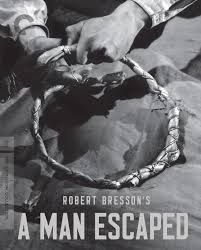
A Man Escaped
- Release Date
-
August 26, 1957
- Runtime
-
101 Minutes
- Director
-
Robert Bresson
- Writers
-
André Devigny, Robert Bresson
1
‘The Shawshank Redemption’ (1994)
Directed by Frank Darabont
“Hope is a good thing, maybe the best of things.” The most beloved prison movie of all time still earns its reputation. The Shawshank Redemption is the rare film that grows more profound the more times you watch it. Based on a novella by Stephen King, it follows the decades-long bond between banker Andy Dufresne (Tim Robbins) and lifer Red (Morgan Freeman) inside Shawshank Penitentiary. What begins as a grim tale of injustice becomes a slow-blooming fable about persistence, connection, and redemption. It’s one of the most touching depictions of male friendship in cinema history.
Frank Darabont handles the material with deep compassion, never hurrying the story but always moving it forward. It’s amazing how perfectly everything comes together. The performances are iconic, the narration legendary, and the final image, waves crashing on a sunlit shore, is genuinely cathartic. Shawshank reminds us that even in the darkest places, hope can tunnel through. And maybe, just maybe, get you out.
